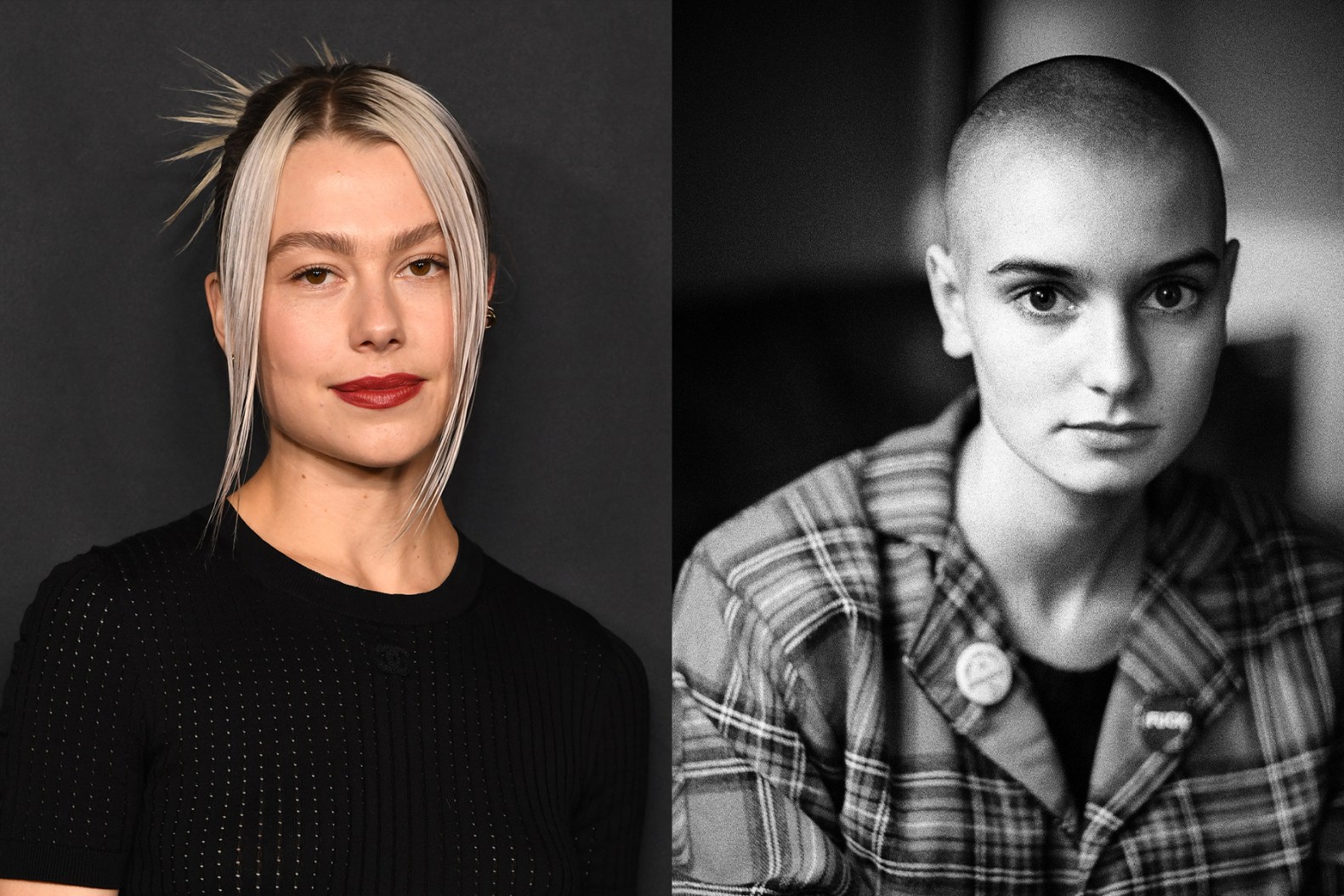Phoebe Bridgers remembers Sinéad O’Connor: ‘It’s abuse to be told to shut up and sing’
The singer-songwriter on how O'Connor taught her — and so many others — to stand up for what's right, even as she got a raw deal from the music industry
By David Browne

Phoebe Bridgers wasn’t born yet when Sinéad O’Connor decided to bring attention to the cause of child abuse by ripping up a photo of the pope on Saturday Night Live in 1992. Years later, though, Bridgers learned about O’Connor’s music, life, and beliefs, and she went on to cover ‘Black Boys on Mopeds,’ the song O’Connor wrote partly about the death of a young Black man in England accused by police of stealing a scooter. It’s just one example of how, as Bridgers tells Rolling Stone, O’Connor made a huge impact on artists long after she had been unfairly banished by the music business.
I never met or saw Sinéad live, unfortunately. When I heard she died, I was heartbroken. It reminded me of that one year, 2016, when everyone was dying, like Leonard Cohen and David Bowie. I thought, “There’s a hero I won’t meet.” When Sinéad died, it hit me the same way.
I probably first heard her thanks to my mom, who had — and still has — the coolest music tastes. Even before I heard Sinéad’s music, I knew she was a revolutionary. I was obsessed with her and the “Nothing Compares 2 U” video. I even had a very, very short-shaved head in high school. I definitely shaved it for her. I have the worst-shaped head, so there weren’t many people I would have shaved my head for.
When I was a kid I pretended to know what she was talking about, but then I started digging into her and what she stood for. I learned more so that I wouldn’t be embarrassed. She has a rap on a later album [“Famine“] about the famine in Ireland that was forced upon them by the British government. When I first heard it, I thought, “This is funny — Sinéad O’Connor rapping.” But it’s very informative and I thought, “Whoa, I actually learned a bunch of things I didn’t know.”
So many protest songs, especially post-Bob Dylan, are so fucking corny. They feel like people knew they were supposed to write a protest song or appease a larger group they felt they should be a part of. But Sinéad always believed things that she actually believed, not things she was told to believe by somebody else, even if it was completely subversive.
That is so exemplified in “Black Boys on Mopeds.” It’s such a simple recording. The thing about covering her is that she makes the hardest things to sing sound so easy. I had to practice “Black Boys on Mopeds” so much to even do a for-idiots version of it. Her vocal styling is unlike anything else. She does that Irish folk thing with her voice, the same way Dolores O’Riordan did, that is just so hard to do. I think you have to grow up doing it, and it’s fucking incredible.
Whether it’s about the famine or the Catholic Church or Margaret Thatcher, history is on her side in a way it wasn’t at the time. People and the media were not nice to her. She was ostracized from so many things, and so many people thought she was a grumpy person. It’s abuse to be told to shut up and sing. It’s abuse to be worshipped and then hated. It’s such a sad and heartbreaking story. Behind every famous woman are tons and tons of rape and death threats. She made a huge sacrifice for women and for musicians and for people who believe in things. She was so not rewarded for it.
If your entryway into politics or standing for something is because you want to be awesome like Sinéad O’Connor, then great. She embodied what it means to be a musician and stand for something. Maybe it’s the internet, but in today’s landscape, people are told what is kosher to believe in and they just do that or the bare minimum. She was not like that at all. She made me feel like I was allowed to stand for things. It’s still hard, but I feel so lucky to be in a landscape where I can feel validated and my beliefs are taken seriously. And that world exists because of Sinéad’s sacrifice.
